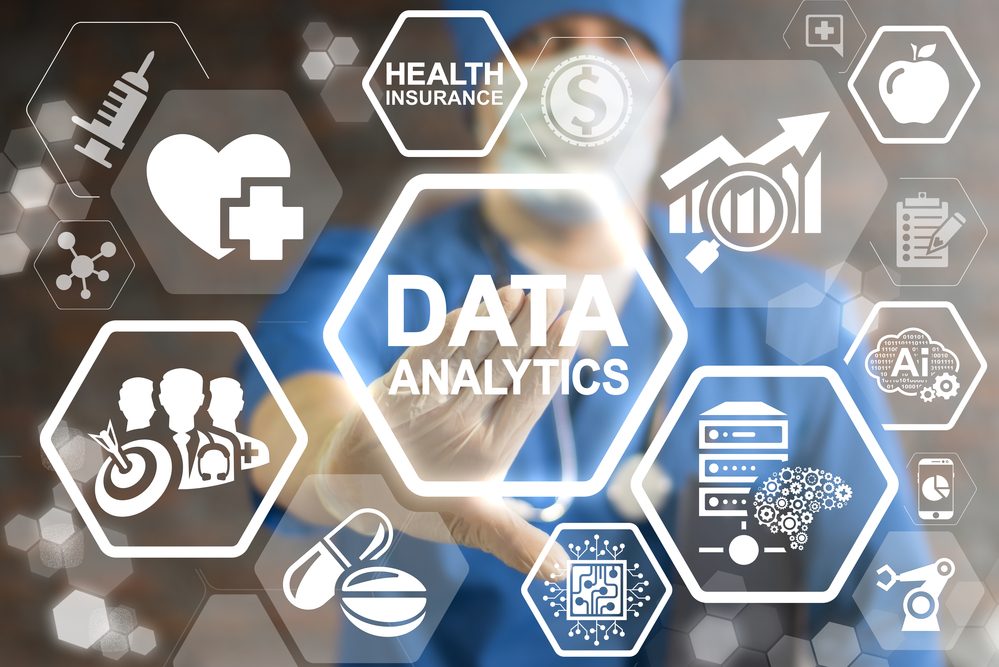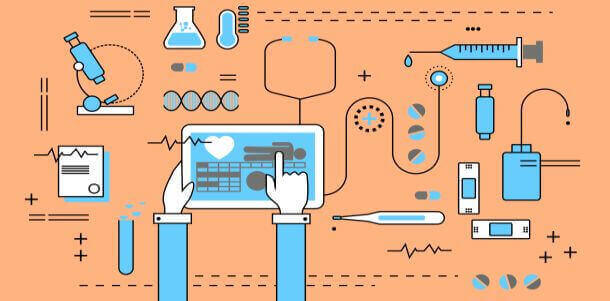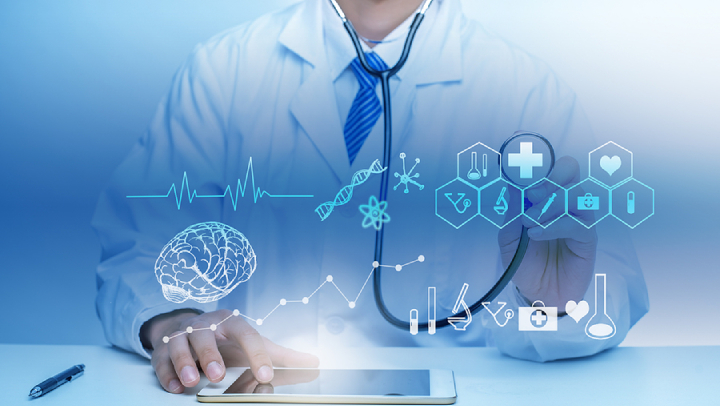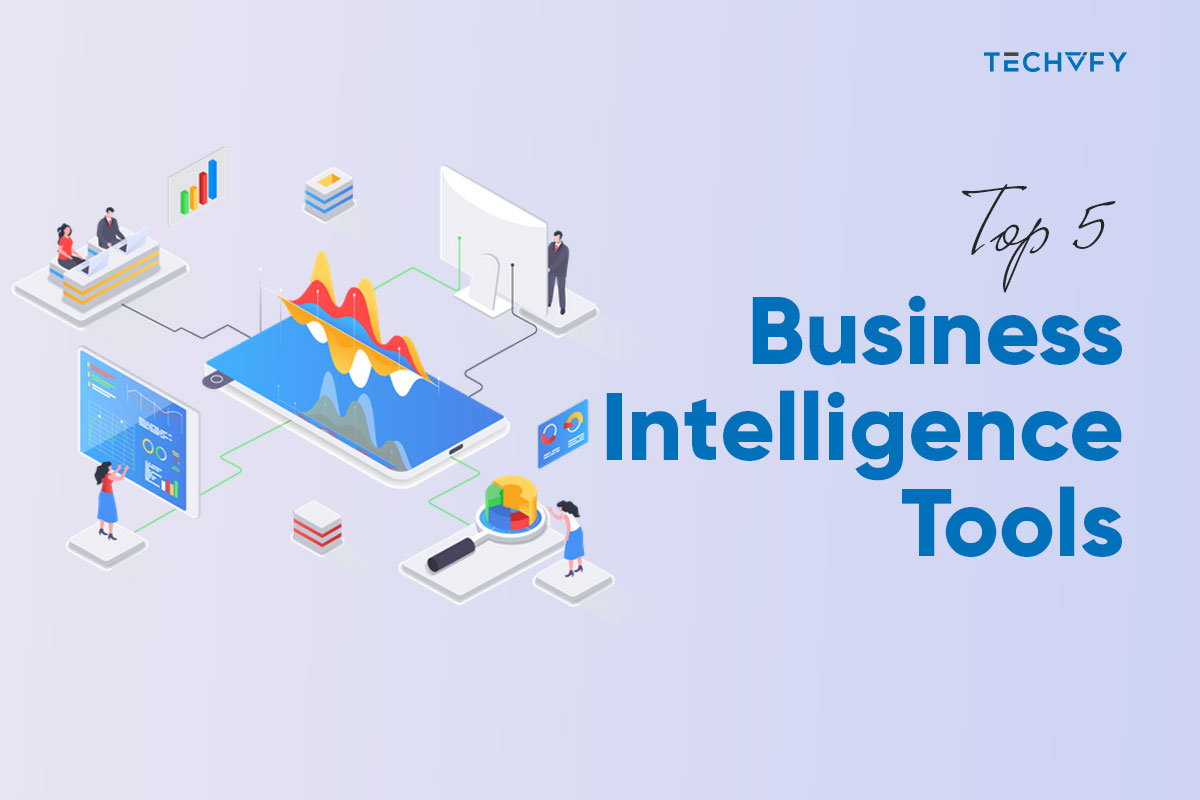Data analytics technology and healthcare are promising to revolutionize how healthcare sectors run and the quality of care experienced by patients. According to a survey by the Society of Actuaries, an impressive 60% of healthcare executives have already integrated healthcare data analytics into their organizations. The outcomes speak volumes — among these executives, 42% have witnessed elevated patient satisfaction, while 39% have reported substantial cost savings. In this article, we embark on a journey to uncover the transformative benefits, categories, and new horizons it opens for the entire healthcare ecosystem.
I. What is data analytics in healthcare?
Healthcare data analytics involves gathering, examining, and interpreting past and present information to uncover valuable insights, patterns, and connections. This method leverages sophisticated technology and statistical techniques to convert raw data from diverse sources like electronic health records (EHRs), medical scans, wearable gadgets, clinical studies, and administrative files into practical knowledge. Notably, the use of data analytics in healthcare not only benefits medical institutions but also contributes to enhancing patient experiences and health results.

II. Elevate exceptionally with the benefits of healthcare data analytics
- Enhanced Operational Efficiency
Healthcare companies can significantly enhance their operational procedures with medical data analytics. It locates inefficiencies by analyzing data related to patient flow, resource consumption, and administrative duties. Administrators in the healthcare industry may now reallocate resources, enhance staff scheduling, and streamline workflows using this insight. As a result, health organizations can reduce wait times, increase employee productivity, and minimize operational costs.
- Informed Decision-Making
Healthcare administrators and policymakers can make well-informed decisions thanks to data-driven insights provided through these advancements. These insights allow for well-informed choices in various fields, including resource allocation, capacity planning, and patient care tactics. Data analytics, for instance, can identify regions with a high demand for medical services, enabling managers to distribute resources appropriately. Evidence-based decision-making eventually improves patient satisfaction and overall operational effectiveness by assisting organizations in adapting to shifting conditions and changing patient demands.
- Better Patient Results
Health data interpretation makes a significant improvement in patient outcomes and care. Healthcare practitioners can personalize interventions to specific patient needs by assessing patient data, such as medical histories, treatment plans, and monitoring data. This individualized approach ensures patients receive the right interventions, drugs, and treatments, promoting quicker healing and better health results. Data analytics can also help anticipate patient decline and recommend prompt interventions, lowering unfavorable occurrences and readmissions to the hospital.
- Real-time Alerts and Updates
Real-time updates and notifications are benefits of data analytics in the healthcare industry. Healthcare practitioners can receive instant alerts about significant patient status changes by monitoring patient data streams, wearables, and sensor networks. This skill facilitates quick responses to falls or abnormal heartbeats, guaranteeing prompt medical assistance. In addition to improving patient safety, real-time notifications allow healthcare professionals to act quickly and decisively, particularly in emergencies.
- Advances in Medical Research
The field of medical research has transformed thanks to data healthcare. Vast datasets from numerous sources, including clinical trials, genetic studies, and patient records, can be analyzed to reveal important insights about disease patterns, treatment effectiveness, and new medical trends. This information supports the development of novel treatments, medication interactions, and diagnostic techniques. The capacity to find correlations and trends in vast datasets quickens the pace of medical innovation and helps improve medical procedures.
Healthcare industry in TECHVIFY:
III. Master all types of healthcare analytics for comprehensive improvement

1. Descriptive Analytics
With historical healthcare data, descriptive analytics can shed light on prior occurrences and trends. This kind of analytics aids administrators and practitioners in understanding what has occurred in the world of healthcare. It summarizes and visualizes data to comprehensively overview patient demographics, admission rates, disease prevalence, and treatment outcomes. The underlying understanding of healthcare operations provided by descriptive analytics acts as a springboard for more sophistication.
2. Diagnostic Analytics
The main goal of diagnostic analytics is understanding the causes of previous occurrences and outcomes. Drilling down into the data to find patterns, outliers, and correlations is part of the process. Diagnostic analytics in healthcare can assist in identifying the reasons behind disease outbreaks, unsuccessful treatments, or patient readmissions. Healthcare professionals can address root causes and decide on future preventative and intervention methods by thoroughly reviewing historical data to understand why particular occurrences occurred.
3. Predictive Analytics
Predictive analytics examines historical and current data to forecast future outcomes. This kind of analytics can help the healthcare industry by helping foresee disease outbreaks, patient deterioration, or readmission risks. Healthcare providers can spot trends and patterns that hint at problems before they arise by applying statistical models and machine-learning algorithms to patient data. Clinical professionals can intervene proactively, improve patient care plans, and efficiently allocate resources thanks to predictive analytics.
4. Prescriptive Analytics
By recommending steps to improve results, prescriptive analytics extends predictive analysis. The healthcare industry relies on data-driven insights to recommend personalized treatments, therapies, and strategies. Prescriptive analytics suggest the best treatments or medications based on patient information and treatment outcomes. Prescriptive analytics directs healthcare professionals to make decisions based on the best available evidence and deliver patient-centered care by offering practical recommendations.
5. Real-time Analytics
Real-time analytics provides fast answers and valuable insights by analyzing data as it gets produced. Real-time analytics are essential in the healthcare industry for monitoring patient vitals, data from wearable devices, and emergency scenarios. When a patient’s status changes critically, healthcare personnel can get immediate alerts, enabling quick treatments. This advance improves patient safety, speeds up responses, and guarantees prompt emergency medical care.
IV. Why is data analytics important in healthcare?
Technology is becoming increasingly immersed in all facets of our lives in the twenty-first century. The healthcare industry, however, frequently needs help with the difficulty of slower-than-average technological advancement adaptation. For example, according to estimates, slightly more than half of hospitals don’t plan to integrate data analytics or governance into their everyday business operations, and a startling 97% of hospital-generated data is lost. A potential solution to this problem is to use data analytics in the healthcare industry. Hospitals and other healthcare facilities may improve patient care quality, streamline workflows, and operate more efficiently by utilizing data.

However, the substantial benefits of data analytics in healthcare often get ignored, though this industry plays a crucial part in human existence. The decisions and actions people make in this area affect the health and general well-being of the community. Therefore, maximizing advantages will result from using data as a helpful tool for making decisions and raising the bar of care. These pros have positive effects not only on the healthcare sector but also on society at large.
Conclusion
Healthcare Data Analytics software stands out as a light of transformational potential in a world where every choice counts, promising better healthcare outcomes and a better future for all. The impact of data analytics in healthcare is undeniable, as it empowers hospitals and healthcare facilities to optimize operations, enhance patient care quality, and revolutionize medical research.
To boost your hospital competencies, leverage this advancement with top engineers. Contact TECHVIFY to discuss more.
TECHVIFY – Global AI & Software Solution Company
From Startups to Industry Leaders: TECHVIFY prioritizes results, not just deliverables. Accelerate your time to market and see ROI early with high-performing teams, AI (including GenAI) Software Solutions, and ODC (Offshore Development Center) services.
- Email: [email protected]
- Phone: (+84)24.77762.666





